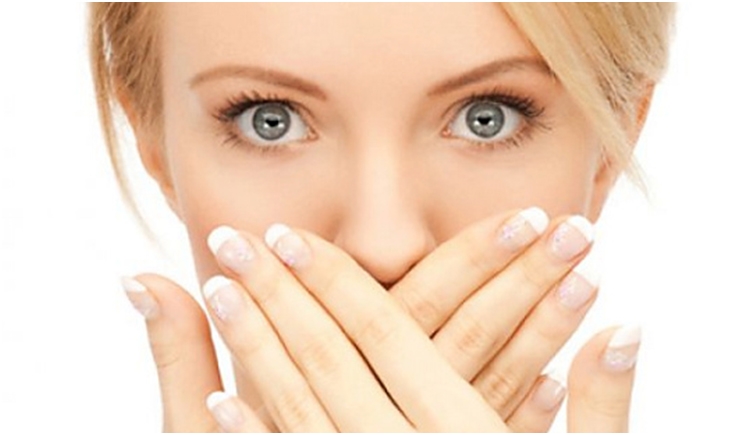
Sometimes, patients have bad breath. But you can’t always blame it on their failure to brush or on the pungent lunch they had. Halitosis has genuine clinical causes. Even though it may be an awkward topic, dentists should discuss it with their patients and resolve what may be a chronically embarrassing situation. Gustavo G. Nascimento, DDS, PhD, of Aarhus University in Denmark, coauthor of a study that examined the effects of periodontitis on bad breath, recently shared his insights with Dentistry Today.
Q: How does periodontitis create bad breath? Are there specific gases that are produced?
A: The oral malodor seems to arise from the interaction between bacteria and specific substrates, such as proteins and peptides, that are more abundant in the gingival fluid of individuals with periodontitis. Proteins and peptides are hydrolyzed by periodontal pathogens, resulting in volatile sulfur compounds, which are responsible for the characteristic bad breath.
Q: Which specific bacteria seem most responsible for malodor?
A: It has been suggested that the bacteria from the “Red Complex” (Porphyromonas gingivalis, Treponema denticola, and Tannerella forsythia) are the most responsible for halitosis, since they putrefy glycoproteins and proteins in the oral cavity, including periodontal pockets and the tongue dorsal surface.
Q: How does this type of bad breath differ from malodors caused by, for example, a stinky diet or poor oral hygiene?
A: It is hard to distinguish the origin of the bad breath. Usually, malodor caused by a smelly diet, like spices and garlic, presents an odor compatible to the ingested food. Bad breath due to poor oral hygiene is similar to oral malodor from periodontitis. However, it is worth emphasizing that halitosis caused by diet or poor oral hygiene are transitory conditions depending mainly on the change of habits (change of diet, improvement of oral hygiene), whereas halitosis caused by periodontitis seems to be persistent independently of dietary pattern and quality of oral hygiene.
Q: How does it differ from bad breath caused by other systemic health issues?
A: Unfortunately, there is no objective way to determine the origin of halitosis. Since in most cases, the odor is caused by an oral source, a visit to a dentist is recommended in cases of persistent halitosis. In the absence of signs of possible oral cause, such as periodontitis or heavy tongue coating, an investigation of possible sources in combination with a physician is suggested.
Q: Demographically speaking, are some populations more vulnerable to bad breath than others?
A: In a previous study, we identified that individuals from low- to middle-income countries presented higher prevalence of halitosis. We hypothesized that this fact could be explained by the greater prevalence of periodontitis observed in low- to middle-income countries. Also, it has been presented in the literature that populations consuming more volatile foods, such as spices and garlic, tend to present higher prevalence of oral malodor.
Q: When dentists encounter a patient with bad breath, what do they need to do to pinpoint its cause?
A: In the first place, a detailed oral exam should be conducted, with special attention to the tongue and the periodontal tissues, since periodontitis and heavy tongue coating are pointed to as the main oral sources of halitosis. When conducting a periodontal examination, dentists should pay attention to the presence of plaque, calculus, deep pockets, and attachment loss because they are related to inadequate oral hygiene and/or periodontitis presence.
Q: Once periodontitis has been uncovered as a possible cause, what are the most effective treatments in resolving the malodor?
A: Periodontal therapy should be implemented as soon as possible. The therapy should focus on the reduction of bacterial load as well as the load of micronutrients by effective periodontal scaling, tooth brushing, and tongue scraping. Supportive periodontal therapy should be encouraged in order to control periodontitis. In specific cases, the use of mouth rinses containing chlorhexidine for short periods may help to reduce the oral malodor.
Q: Bad breath can be a very sensitive and embarrassing topic. What is the best way to broach it with your patients?
A: Usually, it is the patient who seeks halitosis treatment due to social and personal embarrassment. Thus, dentists should use the patient’s willingness for halitosis treatment as a motivational instrument for periodontal therapy to improve chances of compliance.
Q: Where can dentists go to learn more about treatment for bad breath?
A: There are several scientific articles published in periodontal journals on the topic. There are 2 reviews recently published that can be of value to clinicians:
- “Periodontal Diseases as a Source of Halitosis: A Review of the Evidence and Treatment Approaches for Dentists and Dental Hygienists,” published by Periodontology 2000: In this article, the authors review the literature to present potential oral sources of halitosis and discuss treatment approaches that can be employed by the oral health team.
- “Treatment of Oral Malodour. Medium-Term Efficacy of Mechanical and/or Chemical Agents: A Systematic Review,” published by the Journal of Clinical Periodontology: In this article, the authors compare different approaches to treat halitosis and present a summary of the available evidence about the most effective treatment of oral malodor.
Related Articles
Desktop Device Diagnoses What Causes Bad Breath
Kit Helps Patients Achieve Fresh Breath and Better Oral Health











